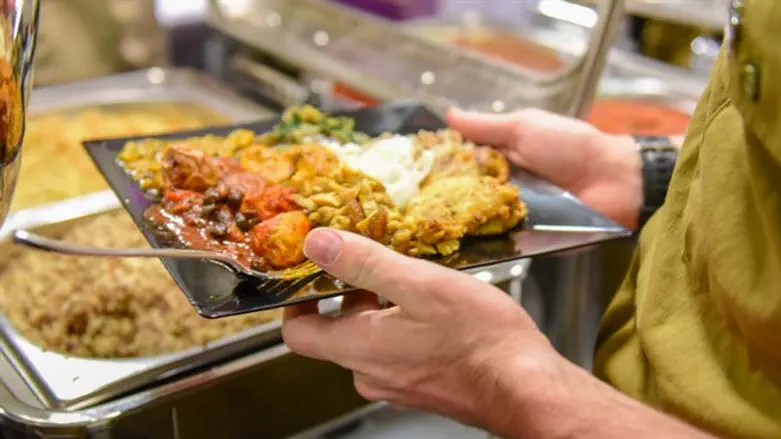
Spending the festivals far away from home is not most people’s cup of tea, but for those on duty in the IDF, at least their officers are doing whatever they can to make conditions as pleasant as possible. The IDF has been preparing for the High Holidays for months, and the officers hope that when the time comes, soldiers will appreciate their efforts.
Arutz Sheva spoke with Lieut. Col. Rabbi Haim Weissberg, who described the intensive preparations and the assistance of the IDF Rabbinate in getting ready for the festivals, especially Rosh Hashanah.
“We’ve prepared huge quantities for our soldiers,” Weissberg relates. “Soldiers will have a large variety of foods to choose from, along with, of course, the traditional symbolic foods for the New Year just like at home. We want them to have the best possible conditions, and we’ve worked very hard to do whatever we can toward that end.”
Weissberg notes that, “We’re still in the coronavirus period, so we always have to keep in mind the latest Health Ministry guidelines. What this means in practice is that we need to prepare for twice as many soldiers as during a regular year, because so many more soldiers will be staying on base during the festivals. Usually, we would distribute shofars on the basis of one shofar to each unit, but this year we’ll be distributing many more. That of course also means that we need more soldiers who can blow them, so soldiers who do know how will be teaching others to blow as well.”
That’s all very well for soldiers on bases, but what about those in pillboxes or other isolated posts?
“We’re working 24/7 to find a solution for everyone,” Weissberg says. “Soldiers in pillboxes will receive complete sets including everything they need for the festivals. No one will be left out, and they’ll get a choice of menu just like everyone else.”
The IDF is also providing Selichot tours for soldiers in various locations across the country. “This gives all our soldiers an opportunity to connect with tradition. At the end of the day, the planes still have to fly and the soldiers still have to fight,” Rabbi Weissberg adds, “and that is our duty – to maintain security in the country, no matter when.”